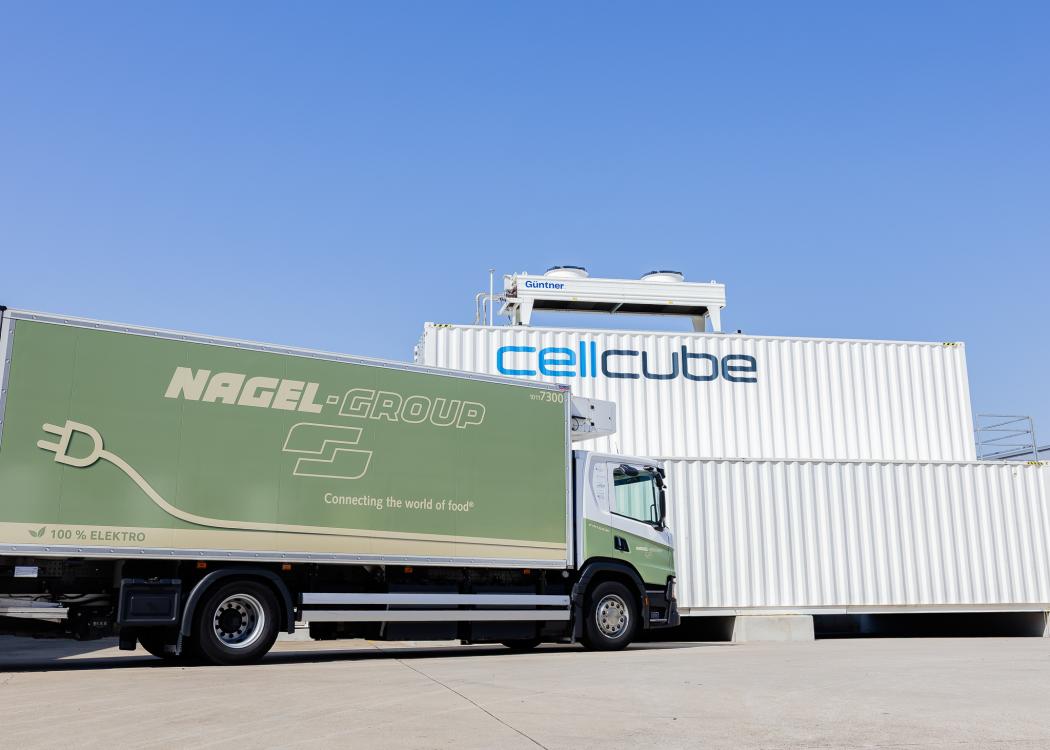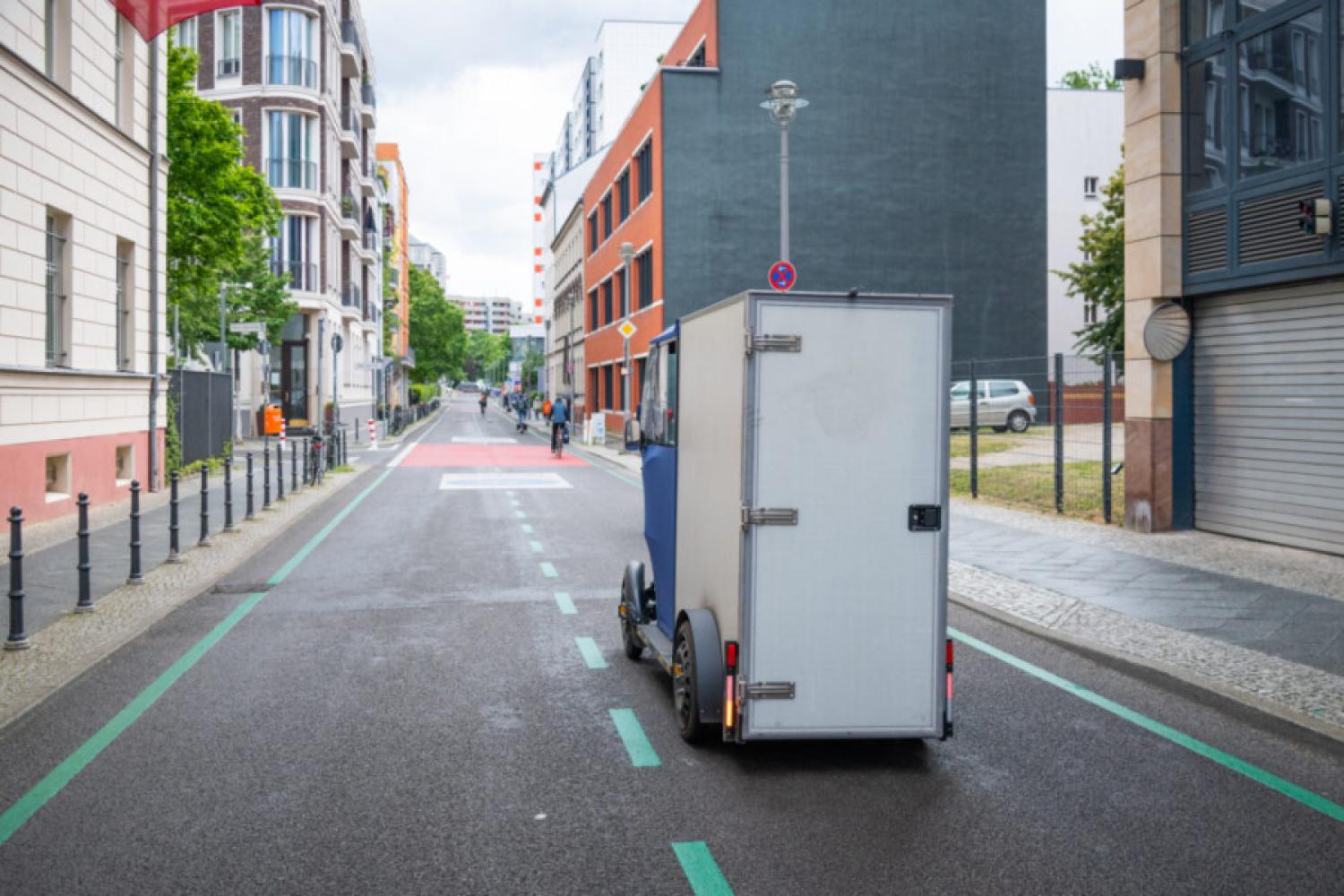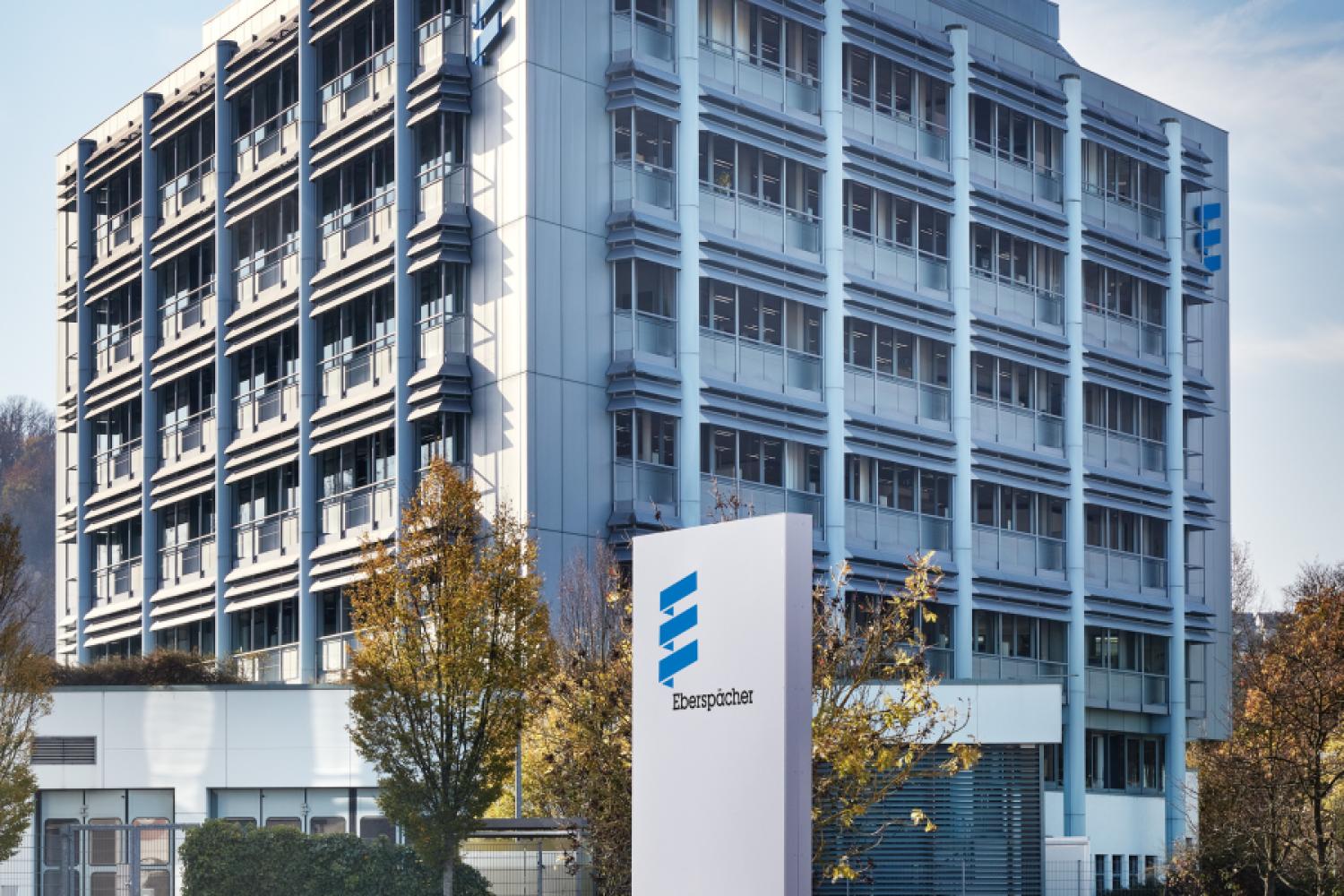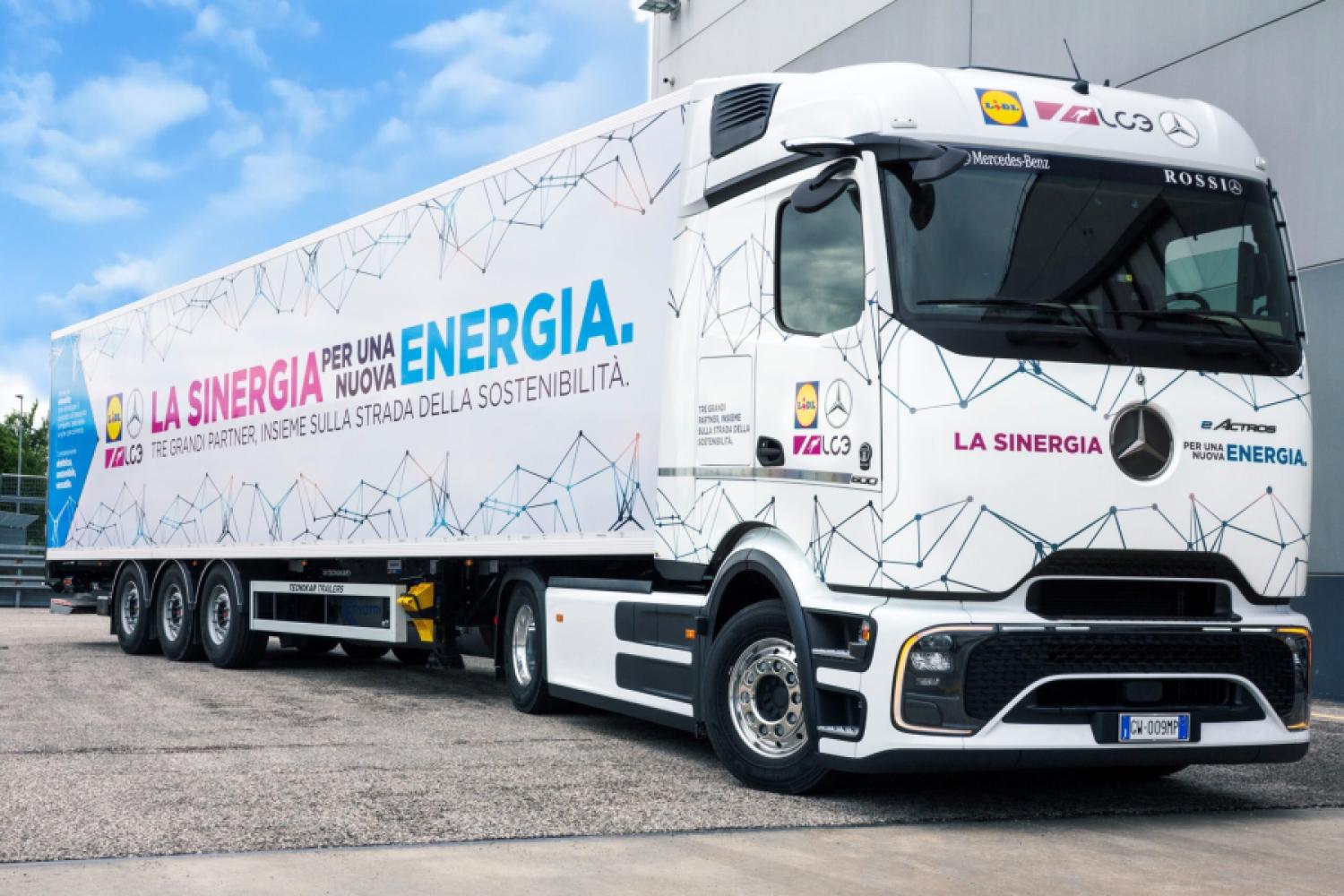At the Bochum location, the food logistics company has put into operation an innovative battery storage system by the Austrian manufacturer CellCube. According to their own statements, the new storage system complements the largest rooftop photovoltaic system in the Ruhr area, which is also located in Bochum, and is intended to increase the self-consumption rate of the generated electricity.
Until now, around 40 to 50 percent of the solar energy from the photovoltaic system could not be used directly and was fed into the public grid. With the new energy storage system, these surpluses can now be efficiently stored temporarily and used directly on-site as needed.
Security of Supply for Food LogisticsAccording to the logistics company, up to 450,000 euros in electricity costs can be saved per year through self-consumption. The electricity is then used to supply cooling systems, charge electric trucks and industrial trucks as well as to avoid electricity peaks during the day. Carsten
Taucke, CEO of the Nagel-Group:
“The new battery storage is another important component of our sustainability strategy. It enables us to use renewable energy more efficiently and to further strengthen the security of supply for our temperature-controlled processes.”
The CellCube storage technology offers several advantages for food logistics. With a storage capacity of 2.5 MWh and a maximum power output of 500 kW, the deployed battery storage reliably provides energy, even at night or on days with low sunlight.
Especially in the area of temperature-controlled logistics processes, this is a decisive advantage because if there is a short-term network interruption, the storage can spring into action and secure the electricity supply for critical cooling systems. This means it also acts as a temporary backup power source.
Managing Load PeaksAccording to the Nagel-Group, another advantage lies in intelligent load peak management. Especially in food logistics, there are always heavily fluctuating energy demands, for example, when several electric
trucks are being charged simultaneously. The power storage can cushion these load peaks with an absorption capacity of up to 666 kW, because the Vanadium-Flow technology is based on non-flammable, water-based electrolytes, which operate safely even at extreme temperatures between minus 40 and plus 45 degrees Celsius.
At the same time, the system impresses with its long lifespan of over 30 years and more than 30,000 charge cycles. This means for the logistics company that the full storage capacity is maintained throughout its lifecycle. By using self-generated electricity from the photovoltaic system, the costs of electricity procurement at the Bochum site can be reduced by approximately 450,000 euros annually.
Sustainability Thought Through ConsistentlyAndré Pleines, Executive Director Real Estate of the Nagel-Group:
“With the CellCube system, we rely on a storage solution that perfectly meets the requirements of our logistics centers: robust, low-maintenance, and economically scalable. The technology integrates seamlessly into our existing infrastructure and helps us
make our energy supply more independent and sustainable in the long term.”
The sustainability of the storage solution is evidenced not only in its operation but begins already in its manufacturing. The Vanadium electrolyte used is sourced from recycled materials such as by-products of the steel industry. It is non-flammable, non-explosive, reusable, and contains no rare earth elements, an environmental advantage over conventional battery systems. Christoph Stelzer, COO of CellCube Energy Storage GmbH:
“With the Nagel-Group, we gain a forward-looking partner that demonstrates how sustainable energy storage and critical corporate applications such as cold chain logistics can work excellently together. Our Vanadium technology offers the necessary safety, longevity, and scalability for this.”
The Bochum location is intended to serve as a pilot project for the integration of energy storage systems in food logistics, it is said. Further logistics centers of the Nagel-Group, including in Hamburg, are already in the concrete planning phase for the implementation of






